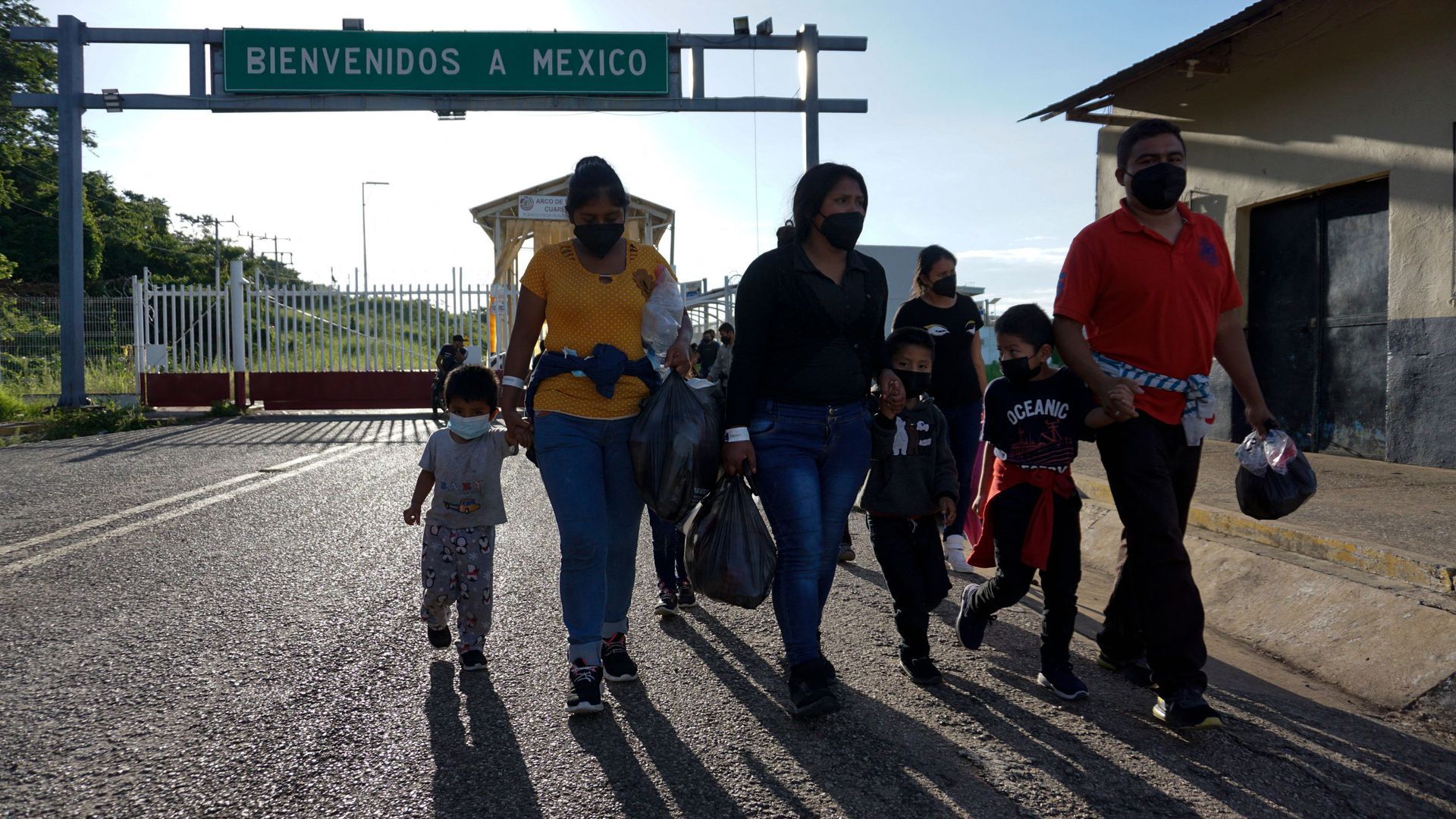Aug 28, 2021 - Politics & Policy
Courts leave asylum seekers in limbo
Add Axios as your preferred source to
see more of our stories on Google.

Central American migrants who were expelled from the U.S. and later bused by Mexican authorities to El Ceibo, Guatemala. Photo: Johan Ordóñez/AFP via Getty Images
